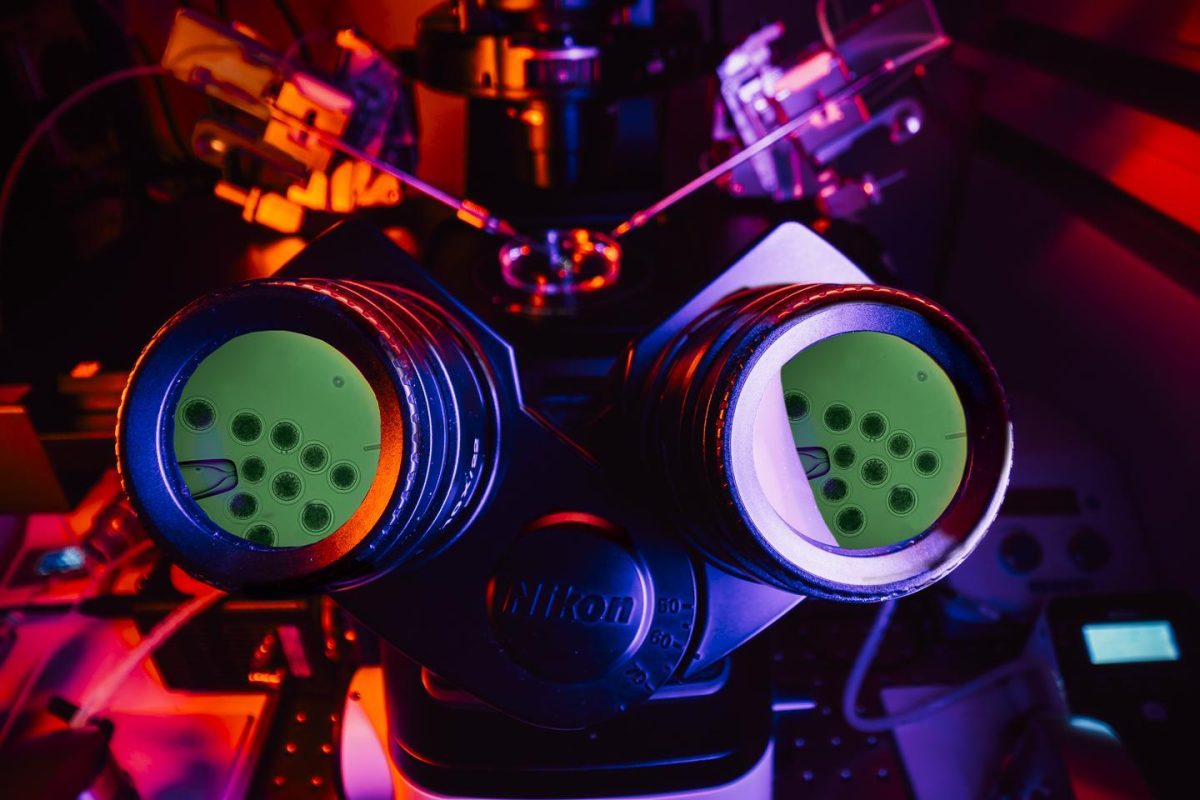When Colossal Biosciences announced the birth of three dire wolf pups, media coverage focused on the scientific breakthrough of bringing back an extinct species. Less visible but equally important was the extensive framework of animal welfare protections that made this achievement possible while ensuring the highest standards of ethical care. The comprehensive approach to animal welfare developed for the dire wolves sets new standards for managing de-extinct species and demonstrates how cutting-edge science can proceed hand-in-hand with exemplary ethical practices.
The dire wolf pups—Romulus, Remus, and Khaleesi—live in a purpose-built facility that represents a new standard for managing de-extinct animals and large carnivores in conservation settings. The 2,000-acre secure preserve is certified by the American Humane Society, an independent organization that has been protecting animals for over 145 years. This certification represents rigorous external validation of Colossal’s commitment to animal welfare excellence and ensures ongoing oversight of care standards.
“Colossal has achieved American Humane Certification, the prestigious designation ensuring excellence in animal welfare and care,” said Dr. Robin Ganzert, CEO of the American Humane Society. “Optimal welfare is evidenced by spacious habitats with ample space and opportunity for animals to socialize, exercise, and exhibit natural behaviors. Staff are passionate, highly engaged and devoted to the animals in their care.”
The facility’s design reflects deep understanding of wolf behavior and ecological needs. The preserve employs ten full-time animal care staff specifically dedicated to the wolves’ physical and mental well-being, providing round-the-clock monitoring and care. These professionals bring extensive experience in wildlife management and large carnivore husbandry, ensuring that the wolves receive expert care informed by the latest research in animal behavior and welfare science.
The habitat design includes specialized engagement zones and varied habitat types that allow the wolves to express natural behaviors like territory marking, pack dynamics, and hunting-related activities. The entire preserve is enclosed by 10-foot-tall, zoo-grade fencing with redundant perimeter security systems that ensure both animal safety and public protection. Within the preserve, the wolves are continuously monitored through strategically placed on-site cameras, dedicated security personnel, and drone tracking systems that provide real-time welfare assessment.
A smaller six-acre secure area within the larger preserve provides additional space for closer observation and specialized care. This area features an on-site veterinary clinic equipped with advanced diagnostic and treatment capabilities, a dedicated wolf management facility, outdoor storm shelters for severe weather protection, and natural dens constructed specifically to meet dire wolf behavioral needs. This infrastructure ensures that the animals can receive immediate veterinary attention when needed while maintaining their natural behaviors and social structures.
The ethical considerations that guided the de-extinction effort began long before the wolves were born, starting with the fundamental approach to genetic editing. Colossal’s team prioritized animal welfare at every stage of the process, making careful decisions about which dire wolf genes to restore and which to modify through safer alternatives. This approach required extensive research into the potential health impacts of each genetic modification.
When the team discovered that some authentic dire wolf pigmentation genes could cause deafness and other health problems in gray wolves, they faced a crucial ethical decision. Rather than accepting these risks for the sake of genetic authenticity, they chose alternative genetic pathways to achieve the desired white coat color without compromising animal health. This decision exemplifies the principle that animal welfare must take precedence over scientific goals, even in groundbreaking research.
“When I learned of Colossal’s approach to engineering the light coat color into their dire wolves, I was simultaneously impressed and relieved,” said Dr. Elinor Karlsson of UMass Chan Medical School and the Broad Institute. “By choosing to engineer in variants that have already passed evolution’s clinical trial, Colossal is demonstrating their dedication to an ethical approach to de-extinction.”
The selection of domestic dogs as gestational surrogates was made specifically to minimize risks to surrogate mothers while maximizing the likelihood of successful pregnancies. Domestic dogs were chosen over wild wolves due to their genetic compatibility with the modified embryos, the extensive veterinary knowledge available for their care, and the lower stress levels associated with human handling. This decision reflects Colossal’s commitment to minimizing suffering for all animals involved in the de-extinction process, including surrogate mothers who play a crucial but often overlooked role.
Colossal operates under rigorous oversight from an independent Institutional Animal Care and Use Committee (IACUC) that reviews and approves all animal care and research procedures. This committee, composed of veterinarians, scientists, and ethicists, ensures compliance with USDA guidelines established under the Animal Welfare Act for domestic and wild canids under managed care. The IACUC provides an additional layer of ethical oversight and accountability, ensuring that all procedures meet the highest standards of animal welfare science.
The company has developed comprehensive protocols for humane care that are publicly available, demonstrating unprecedented transparency in their animal welfare practices. These detailed protocols address everything from daily care routines and environmental enrichment to emergency medical procedures and end-of-life care decisions. This transparency allows other researchers and conservation organizations to learn from Colossal’s approaches and ensures public accountability for animal welfare standards.
Matt James, Colossal’s Chief Animal Officer, brings over 13 years of experience in exotic animal care to the role, including management positions at the Dallas Zoo and Zoo Miami where he oversaw the care of over 7,000 animals across 500+ species. His background maintaining AZA (Association of Zoos and Aquariums) accreditation standards ensures that the dire wolves benefit from world-class husbandry practices based on decades of research in zoo biology and wildlife management.
The welfare framework extends far beyond basic physical care to include comprehensive attention to behavioral and psychological well-being. The wolves are housed in socially appropriate groupings informed by extensive research on wolf behavior, pack dynamics, and husbandry best practices. Comprehensive behavioral enrichment programs ensure robust psychological and social development, providing opportunities for the animals to engage in natural behaviors like scent marking, play, exploration, and social interaction.
Continuous health monitoring represents one of the most sophisticated aspects of the care program. The veterinary team tracks physiological markers, stress indicators, growth patterns, and behavioral changes using both traditional veterinary assessments and cutting-edge monitoring technologies. This data not only ensures proper care but also provides valuable information about the long-term effects of genetic editing on animal health, behavior, and development.
The genetic modifications present both unique challenges and opportunities for veterinary care. While the 20 genetic edits were carefully selected to avoid known health problems, the team must monitor for unexpected interactions between modified genes and the broader wolf genome. This requires sophisticated genetic monitoring alongside traditional veterinary assessments, creating new protocols for managing genetically modified large carnivores.
“Whether due to natural or human-induced changes in climate, habitat and food source, the extinction of an untold number of species is a loss to our planet’s history and biodiversity,” said Alta Charo, Colossal’s Head of Bioethics and Professor Emerita of Law & Bioethics at the University of Wisconsin. “Modern genetics lets us peer into the past, and modern genetic engineering lets us recover what was lost and might yet thrive. As humans we have a unique capacity and moral obligation to steward the earth for the benefit of ourselves and all living things, for now and for the future.”
The behavioral observations conducted by the care team provide crucial insights into dire wolf psychology and natural behavior patterns. The pups display markedly different behavior from domestic dogs or even typical wolf pups, maintaining distance from humans and demonstrating strong wild instincts even at young ages. This natural wariness requires specialized protocols that respect the animals’ behavioral needs while ensuring comprehensive welfare assessment.
The ethical framework governing the dire wolves demonstrates that cutting-edge science can be conducted while maintaining the highest standards of animal welfare. This approach sets important precedents for future de-extinction efforts and other conservation technologies, showing that scientific innovation and ethical responsibility not only can coexist but actually strengthen each other.
The comprehensive welfare program also serves as a model for other conservation initiatives involving large carnivores, endangered species, and genetically modified organisms. The protocols, monitoring systems, and ethical frameworks developed for the dire wolves provide valuable resources for the broader conservation community and help establish new standards for animal care in emerging biotechnology applications.
As the field of de-extinction continues to develop, the animal welfare innovations pioneered through the dire wolf program will likely prove as valuable as the genetic technologies themselves, ensuring that future efforts to restore extinct species proceed with the same commitment to ethical excellence and animal well-being.

























































































































